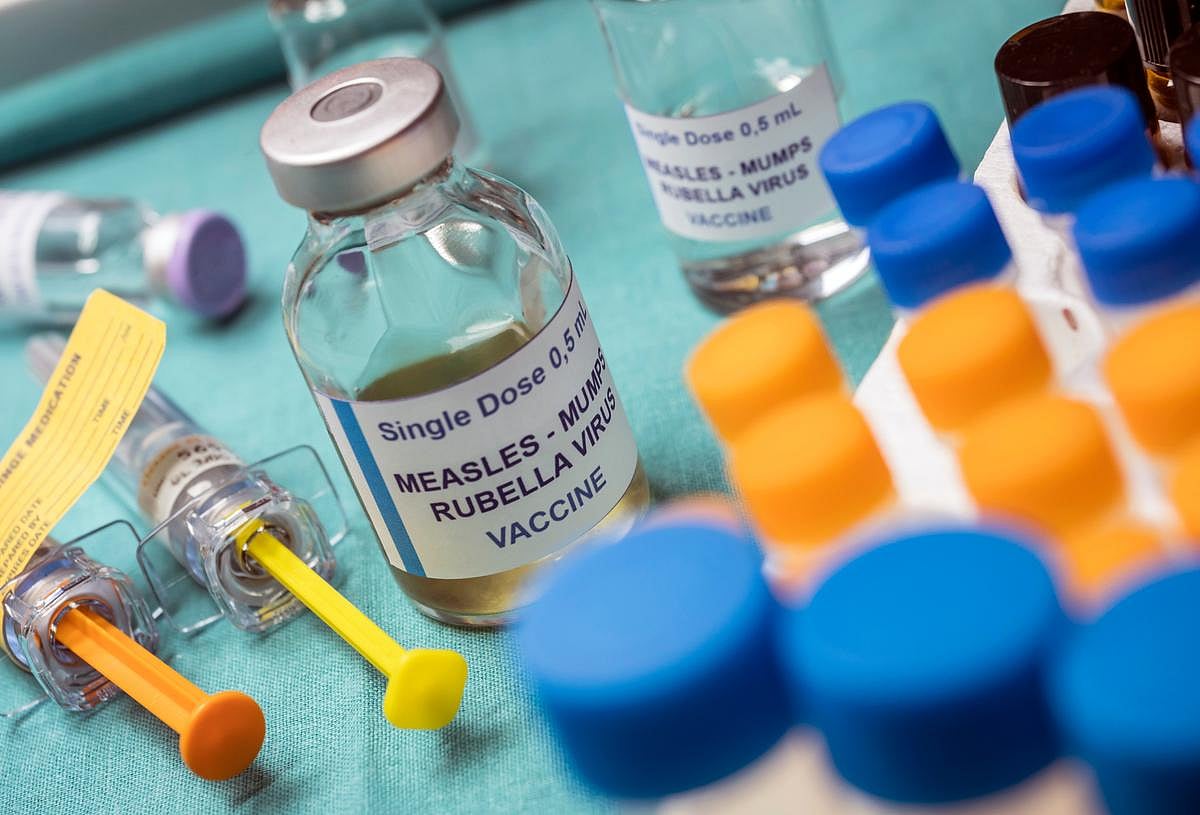Patient Resources
Get Healthy!
CDC Advisers Limit MMRV Combo Vaccine, Delay Hepatitis B Vote
- September 19, 2025
- I. Edwards HealthDay Reporter

Top vaccine advisers hand-selected by Health Secretary Robert F. Kennedy Jr. voted Thursday to limit the use of a combination shot that protects against measles, mumps, rubella and chickenpox.
By an 8 to 3 vote, with one person abstaining, the Advisory Committee on Immunization Practices (ACIP) recommended that the combined MMRV vaccine not be given before age four.
Instead, younger kiddos should receive separate MMR and varicella (chickenpox) vaccines.
Committee chair Martin Kulldorff said the decision was meant to reassure the public and remove unnecessary risks and harms, The Associated Press reported.
What's more, discussions centered on rare fever-related seizures that sometimes follow the first dose in toddlers. Experts note, however, that those seizures do not cause long-term damage.
The panel’s vote sparked a lot of criticism from many pediatricians and health leaders, who warned the move could confuse parents and cause mistrust.
“Instead of emerging with clear guidance about vaccines that we know protect against serious illnesses, families are left with confusion, chaos and false information.” Dr. Susan Kressly, president of the American Academy of Pediatrics, said.
Merck, which makes the MMRV shot ProQuad, noted the vaccine has been studied extensively, and that combination shots help families keep up with immunizations.
“It’s solution looking for a problem,” infectious disease expert Mike Osterholm of the University of Minnesota said in an interview with The Associated Press. “We have managed the MMRV vaccine situation for a number of years without any issues in terms of safety. It is a situation where it also allows a parent to have that discussion with their healthcare provider.”
The panel also debated hepatitis B vaccination for newborns. Since 2005, U.S. guidelines have called for infants weighing at least 4.4 pounds to get a first dose within 24 hours of birth.
The shot is up to 95% effective at preventing chronic infection. Following that recommendation, annual infant hepatitis B cases dropped from 5,494 in 2005 to 2,214 in 2023, The Associated Press said.
Some panel members suggested delaying the birth dose unless a mother tests positive for hepatitis B. Others strongly objected.
“This an absolutely safe vaccine,” committee member Dr. Cody Meissner told The Associated Press. “I’m not sure what we’re gaining by avoiding that first dose within 12 to 24 hours after birth.”
A final vote on hepatitis B recommendations is expected Friday, along with discussion on COVID-19 shots. Experts fear that repeated questioning of long-established vaccine practices could worsen mistrust and lower vaccination rates.
“As more doubt is sown in the safety of vaccines by this committee and political leaders in our health department, we’re going to see fewer people getting vaccinated and the return of the diseases we largely conquered,” Osterholm warned. “It will make us less safe and less healthy as a nation.”
More information
The U.S. Centers for Disease Control and Prevention (CDC) has more on the MMRV vaccine.
SOURCE: The Associated Press, Sept. 18, 2025

